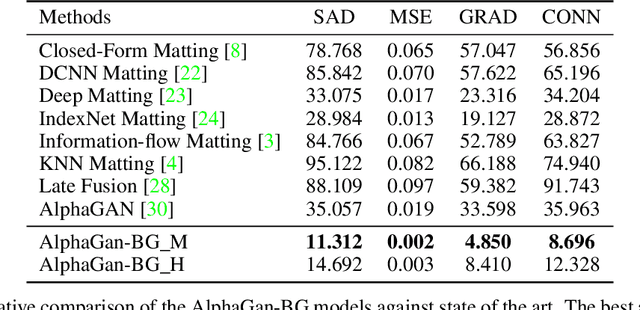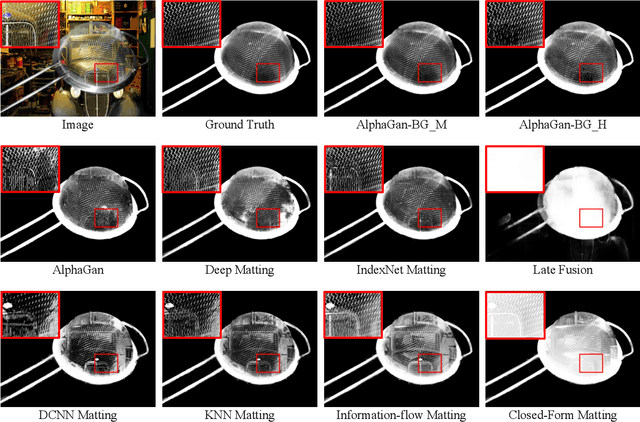Background Matting
Paper and Code
Feb 11, 2020



The current state of the art alpha matting methods mainly rely on the trimap as the secondary and only guidance to estimate alpha. This paper investigates the effects of utilising the background information as well as trimap in the process of alpha calculation. To achieve this goal, a state of the art method, AlphaGan is adopted and modified to process the background information as an extra input channel. Extensive experiments are performed to analyse the effect of the background information in image and video matting such as training with mildly and heavily distorted backgrounds. Based on the quantitative evaluations performed on Adobe Composition-1k dataset, the proposed pipeline significantly outperforms the state of the art methods using AlphaMatting benchmark metrics.
 Add to Chrome
Add to Chrome Add to Firefox
Add to Firefox Add to Edge
Add to Edge